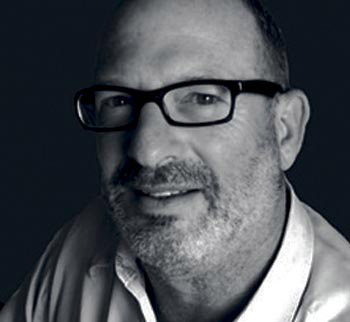All Ontario Jewish women should have the opportunity to be tested for BRCA1 and BRCA2 mutations, says Dr. Steven Narod, a world leader in the field of breast and ovarian cancer genetics.
“Ninety-eight per cent will test negative, but why not test everyone?” he asked at a panel discussion earlier this month titled “The ABCs of BRCA: Everything you Ever Wanted to Know about Cancer and the ‘Jewish Gene’ But Were Afraid to Ask,” presented by UJA Federation of Greater Toronto.
Also on the panel, held at Beth Tzedec Congregation, was Dr. Ellen Warner, a medical oncologist at the Odette Cancer Centre at Sunnybrook Health Sciences Centre, where her practice and research are devoted to breast cancer, and Dr. Andrea Eisen, head of the Familial Cancer Program at Sunnybrook and co-chair of the Cancer Care Ontario Breast Site Group. The moderator was Libby Znaimer, a journalist specializing in health, arts and lifestyle issues, and a breast and pancreatic cancer survivor.
Women who have harmful mutations in either the BRCA1 or BRCA2 genes – which are more common in certain ethnic groups such as families of Ashkenazi Jewish descent – are more likely to develop breast cancer at a younger age than the general population and are at a much greater risk of developing ovarian cancer.
If a parent carries a BRCA1 or BRCA2 mutation, there’s a 50 per cent chance of passing it on to a child.
But even though a woman may have relatives who have had breast cancer, less than one in 10 breast cancers are caused by an inherited gene mutation.
A fact sheet handed out by Willow Breast Cancer Support Canada said that a woman who has a history of breast cancer in her family may want to talk to a genetic counsellor who can assess her personal and family medical history to determine her risk for developing cancer. The counsellor can also discuss options available to reduce the cancer risk and provide information to help her make a decision about whether or not to have genetic testing.
Eisen said that a woman should suspect a possible gene mutation if there are multiple cases of breast or ovarian cancer in her family, if there is cancer in both her breasts, or if there is male breast cancer in the family. As well, “being Ashkenazi is one of the strongest risk factors.”
Narod said studies have found that 14 per cent of ovarian cancer cases are due to genetics, so “until we offer [the test] to everyone, we will not make the impact we want to make on the risk of cancer. With a proactive program, we could reduce the cancer by up to 40 per cent.”
He said there will always be people who say that there should not be universal testing.
Narod, who headed a 2010 study on familial cancer in Jewish women at Women’s College Hospital, in which 7,000 women participated, said that if there is a downside to being tested, it’s that women may experience anxiety, “but in the long term, [that is not harmful]. About 20 per cent of the women who tested positive [in the study] suffered some anxiety, and in five per cent of those, it was severe.”
Warner said that if a woman does test positive, “she should immediately take a deep breath and relax. She’s probably had the gene for 30 or 40 years and does not need to run out and do body-altering surgery. There are many strategies for lowering the risk of developing or dying of cancer in the future.”
She said that the birth control pill lowers the risk of ovarian cancer, and a woman can have her ovaries and fallopian tubes removed. “That can be done quite simply, and there is time to complete your family before it is done.”
She said that women who test positive should have a mammogram and MRI every year by age 30. “Women think they have to rush out and take off their breasts.”
It is important, however, that women who are tested understand the implications. “Some people can’t cope with uncertainty, and we have to be careful that they know what they’re getting into.”
